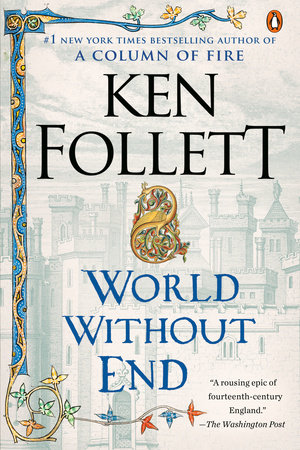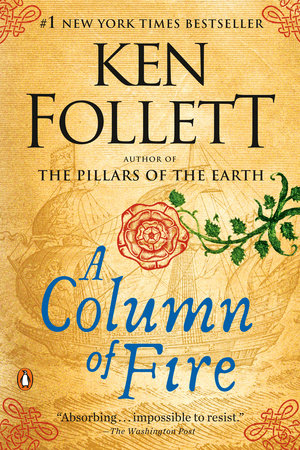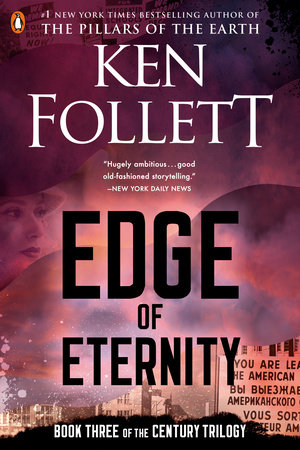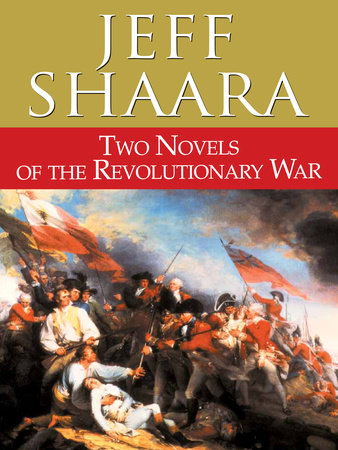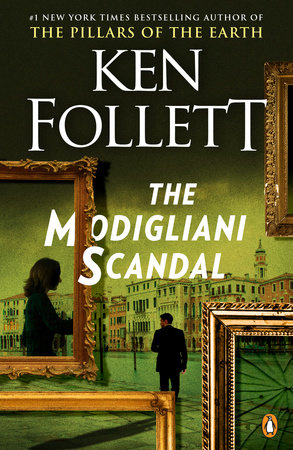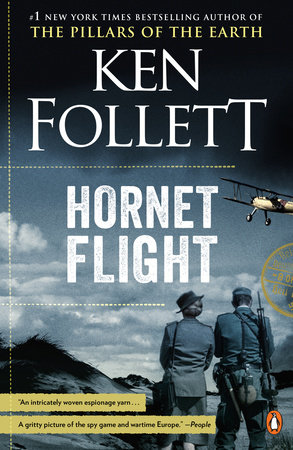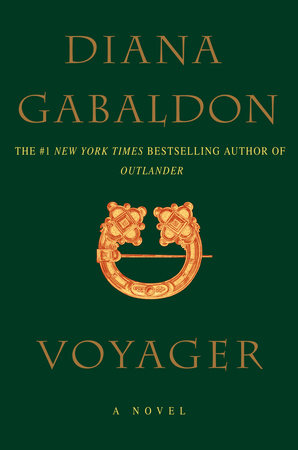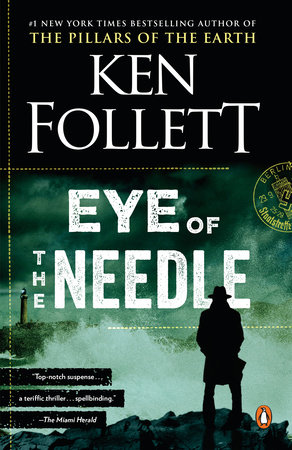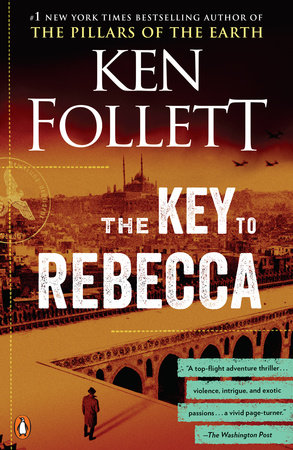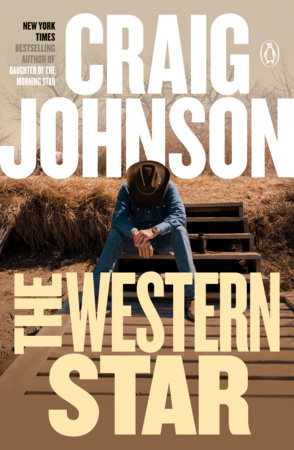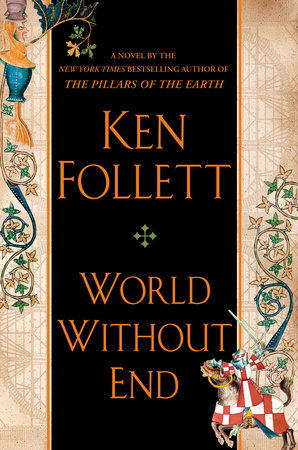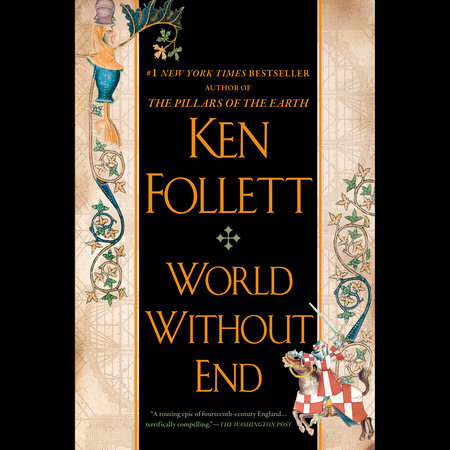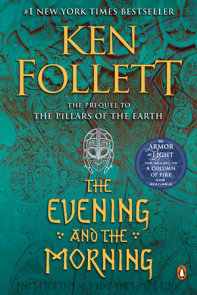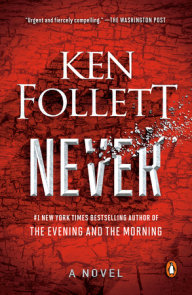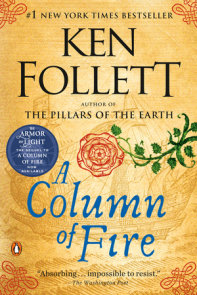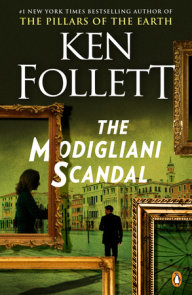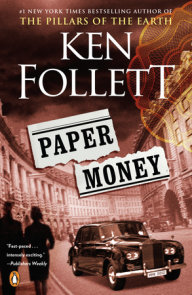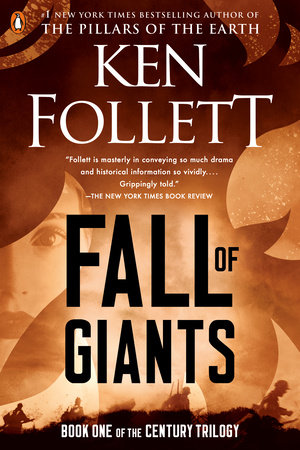Author Q&A
You took a risk to write The Pillars of the Earth. Were you confident it would work both critically and commercially or were you surprised when it became such a success after it was published in 1989?
I felt I had written a very commercial novel with a heavyweight theme, and I was hoping for a big reaction from critics and the public. The reviews were mixed and the public response was, at first, muted. The book sold about the same number of copies in the United States as my previous book, and frankly I was disappointed. But over time it became clear that Pillars was a phenomenally popular backlist title, selling at double the rate of my others. So I was surprised twice.
You’ve said that you consider Pillars to be your best book to date. Do you find that paradoxical, since you’re known primarily as a writer of thrillers and suspense novels?
It was never my ambition to become famous for a novel about a church. I’m still kind of surprised that I wrote it. Of course, it’s not really about a church; it’s about a group of people who set out to do something that seems almost impossible.
Did you know as you were completing Pillars that there would be a sequel?
Pillars was the first book that truly exhausted my imagination. When it was done, I felt as if I had run a marathon. I certainly had no thought of a sequel—in fact, if you had told me then that I would one day have to do it all over again I think I might have thrown myself off London Bridge.
You’ve said that you were nervous about creating a sequel to Pillars, which was so beloved by its readers. Now that you have finished World Without End, do you still feel that way?
No. I was worried, because so many sequels fall below the standard of the original and seem exploitative. But I’m confident that World Without End will give readers the same kind of pleasure as they got from Pillars.
Why did you wait so long to write World Without End? Was it concern about measuring up to Pillars or did you simply need that time to gear yourself up for another major historical novel?
I certainly was concerned to write a novel that would not disappoint the legions of fans of Pillars, but there were other reasons for the delay. At the end of Pillars, all the major characters are either very old or dead. So I could not write another book about them. Eventually, I decided to write another story set in the same town two hundred years later. Also, I spent a long time searching for a theme as grand and as engaging as the building of a cathedral. When finally I thought of a story based around the Black Death and the birth of modern medicine, I felt I had at last come up with a big enough theme.
Why did you set World Without End in the fourteenth century, some two hundred years after Pillars? In what sense was that a time of new ideas, ferment, and change?
Until the Black Death, everyone believed that the best way to recover from illness was to pray. The plague changed people’s thinking. It destroyed their faith in the old methods. In religion, there was a new emphasis on the individual’s personal encounter with God, not necessarily mediated by the priesthood. And, in medicine, the emphasis was on observation and record keeping, which gave physicians practical knowledge about what treatments actually worked. Of course, these changes were fiercely resisted by traditionalists, and this is the background to some of the dramatic conflicts in World Without End.
Some of the characters in World Without End are descendants of characters from Pillars. Can you name a few?
The main female character, Caris, is a descendant of Tom Builder through Tom’s daughter, Martha. Caris and all her family have brown eyes flecked with gold, as Tom did. Merthin, the principal male character, is descended from Jack and Aliena, and has Jack’s red hair as well as his inspired architectural imagination. Merthin’s brother, Ralph, is more like Aliena’a brother, Richard, in being a great soldier but not much use for any other purpose.
What are the main strands of the story in World Without End?
At the beginning of the book, the main characters are all children, but each of them has an aim in life, although they may understand it only vaguely. Caris wants to be a physician, Ralph wants to be a baron, Gwenda longs to be free, Godwyn aims to be Prior of Kingsbridge. The story shows how they struggle to achieve their ambitions—and how their individual destinies are violently disrupted by the plague.
What do you hope readers take away from this novel?
I wanted to write a book that would stay with readers for the rest of their lives.
Do you see a third book in this series?
I certainly don’t see it yet, even vaguely, but it’s possible.
Your work is clearly inspired by the architecture of historical buildings—do you envision that any modern architecture will lead you to create a novel
I have toyed with the idea of a novel about the building of the first skyscraper.
Are there other interests, hobbies, intellectual pursuits of yours that might one day find themselves the subject of one of your books?
I’m interested in Shakespeare, but there have been too many stories about that period. I’d like to write something about the blues one day, but I hesitate because I feel an American writer could do it better.
You’ve said that in childhood you found your escape in the world of books. Is that still true? Who are you reading now? Is it harder now, in the age of television and Internet distractions, to find new authors?
I still read a lot all the time, some history and biography but mostly fiction. I just finished a wonderful novel called The Namesake by Jhumpa Lahiri. One of the reasons I liked it so much is that the author engages the reader totally even though not much happens—quite the opposite of my own books, which are full of incident!
Your wife is a Member of Parliament in Britain, and you are also involved in politics. Is that a completely separate realm from writing for you or do they feed one another?
I never write directly about my own life, but indirectly everything ends up being used in my work. For example, in Pillars and in World Without End, there are elections in which the monks choose their prior. My handling of those dramas is strongly influenced by things that I have experienced as a political campaigner.
You and your wife have a large blended family, and you all spend quite a bit of time together. How do you balance work and family? Has that changed over the years?
There’s no balance. I always give my children priority. If they phone, or show up at my house, I drop my work and talk to them. Nothing else is as important.
What is a typical day like for you, or is there such a thing?
I start work early in the morning, around seven. I do an hour or so then walk the dogs and have breakfast. Then I work until four p.m., with a break for lunch. After four, I return phone calls and reply to emails for an hour or two. I have a glass of champagne at six. Then I either cook dinner at home or put on a suit and go out on the town.
What is your next project?
Give me a break!
